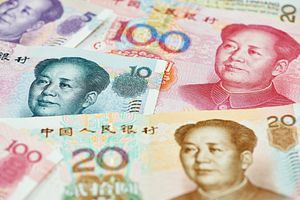This spring and early summer were full of reports that China’s economy — and the dangerous political clout that comes with it — were ebbing. Some were even predicting that the Dragon Economy would collapse altogether and that it would take the world with it in its spiral toward oblivion. But despite these predictions of an economic doomsday, things are looking up this month. Manufacturing surged in July, indeed, rising faster than it has in the past two years. The purchasing managers index (PMI) hit 51.7 last month — the best since April 2012. Any number above 50 indicates growth, but the larger picture shows more than growth; it shows momentum. The main reason for this bump comes in the form of government policy, from boosting spending on railways and social housing to tax breaks for small enterprises.
Yes, China’s “Protect the Eight” is now “Protect the 7.5”, but it’s to be expected. Small things like China’s first bond default back in March caused a bit of mild suspicion and panic; in reality, China was just letting the market do what it does (onlookers can be forgiven for not recognizing this rare sight). Companies are learning their lessons and running from the Chinese “Debt Trap” in unusual ways, and the race to create a consumer culture is taking hold. Gordon G. Chang’s infamous and now proven incorrect book The Coming Collapse of China — a favorite whipping boy for pro-China nationalists — included very real worries, positing that China’s sluggish state-owned enterprises (SOEs) and bogus loans would wreak havoc in five to ten years. That was in 2001 — 13 years later “the coming collapse” still hasn’t arrived. In short, whether people are baffled by China’s numbers, angry over the effect China is having on their countries, or just fed up with the Communist Party’s grandstanding and human rights violations, their concerns haven’t translated to economic failure.
Of course, the lynchpin of the supposed collapse is the Chinese housing market. Fear of shadow banking, unregulated and sometimes unreasonable construction, and the outright cost of all this development (all legitimate worries) has had many wondering when the Chinese housing market is going to collapse and take world markets with it. However, China’s housing market simply defies prediction and common sense. Supposed bubble burst after bubble burst, the market remains reliable, and this is due in no small part to the tightening and loosening of government policy. Chang has been at the head of the housing doomsday brigade, and there’s nothing really wrong with that; pointing to systemic flaws is important. But catastrophic collapse does seem increasingly unlikely.
On housing, the government knows it’s in a bit of a pickle — they have to keep building because it makes up such a large portion of the GDP but building could cause the bubble to finally burst big time. It’s true, China has built too much, but the likely reality is that prices for properties and construction will drop, which will keep China away from the constant predictions of a doomsday scenario. And it did look like doomsday to some. But today, the doomsday predictions for China seem more and more like wishful thinking. While the numbers may point in the direction of worst case scenario, China’s authoritarian government is always quick to act.
Back in May, when people were worried the bubble had already burst, Matt O’Brien commented in The Washington Post: “Hopefully, the rest of the world won’t catch a cold when China sneezes — and it will only be a sneeze.” Yes, a real housing market crash would be potentially catastrophic for China and the rest of the world, but that’s assuming the authorities will twiddle their thumbs as the economy collapses and that systemic failure is more probable than sustainable, predetermined solutions.

































